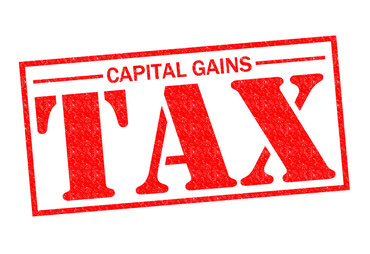Capital Gains Tax for Small Businesses

Capital Gains Tax for Small Businesses
Capital Gain Tax or CGT is the tax payable on an income that falls in the capital gain category. A capital gain refers to the difference between the sale value and the original purchase value of an asset. CGT is not treated as a separate tax but as part of your business’ income tax.
When you know what to look for, you can take advantage of the concessions available on this tax form.
Definition of Small Business
To be able to derive the benefit of CGT concessions, your business must qualify as a small business. According to Australian law, any business, be it, sole trader, company, trust or partnership, is eligible for concessions, if it satisfies the following conditions to qualify as a small business:
-
The business has been in operation for the entire or part of the assessment year
-
The aggregated turnover of your business is less than $2 million
What Constitutes a Capital Gains Tax?
In small businesses, there are several events that amount to a capital gain or loss. In the case of a capital loss, you cannot use it against capital gain to cancel tax. However, you can use it to reduce your tax bill. If in an income year, your business’ capital losses are more than capital gains, you can deduct the losses in subsequent years from gains in those years.
Events that give rise to a CGT in small businesses include:
-
Sale of a business asset. If you are using a personal asset such as your home as a business place, then you could be attracting CGT on the sale of the home.
-
Redemption of shares owned by your business
-
Receipt of any payment from a company, excluding dividends received as a shareholder
CGT Concessions for Small Businesses
There are some concessions that a small business is eligible for, provided certain criteria are met. Having met the qualifying conditions, you can apply for any or all concessions.
A CGT roll-over is a small business concession. In this method, you defer a capital gain resulting from the sale of a business asset for one year. You need not to claim any capital gain for one year until there occurs an event that gives a clear indication of a capital gain. For example, if you do not invest in replacement equipment within a year, the earlier sale amounts to a capital gain.
You are also eligible for a CGT concession if:
-
You are 55 years or above, retiring, and selling a business asset that you have owned for 15 years or more
-
You are selling an asset after 15 years of ownership and are in a permanently disabled condition
-
You are selling an asset that you have owned for over a year. In this case, you can claim a 50% deduction on the capital gain
-
Your total amount of capital gains sums up to $500,000 or less. Sale of a business asset enjoys lifetime exemption up to $500, 000. The exempt amount needs to be moved to a retirement savings deposit or a superannuation fund if you are aged less than 55.
It’s beneficial to explore the concessions you have as a small business. Making utmost use of all eligible concessions empowers you to channel funds for business growth and success.
View All